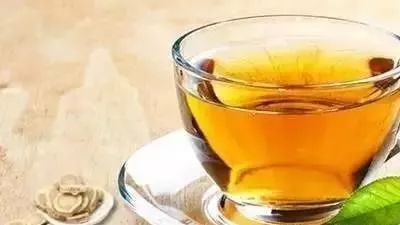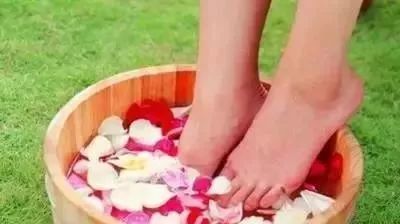Question:How can I receive such articles every day??
Just click on the blue text above the arrow!
The “Huangdi Neijing” is the earliest medical classic in China and one of the four great classics of traditional medicine. It is the most influential medical work in China, known as the ancestor of medicine and a modern health preservation manual.

Life is based on Qi and Blood; all diseases affect Qi and Blood.
Why do some people have a rosy complexion, strong memory, and quick reactions, while others have a dull complexion, declining memory, and sluggish responses?
Why are some people healthy with few ailments, while others suffer from constant minor illnesses and persistent pain? One important reason is the disharmony of Qi and Blood.
Traditional Chinese Medicine (TCM) believes that “when Qi and Blood are not harmonious, all diseases arise”; thus, the harmony of Qi and Blood is crucial!

Disharmony of Qi and Blood easily leads to Blood Stasis! Blood Stasis easily leads to illness!
One common manifestation of Qi and Blood disharmony is Blood Stasis.
When blood flow is obstructed and accumulates in the meridians or organs, it presents as a stagnant state, leading to varying degrees of Blood Stasis.
This can result in symptoms such as pale or dull complexion, fatigue, low energy, sharp pain, and a pale or purplish tongue.
Generally speaking, any area with blood vessels can potentially lead to Blood Stasis.
Therefore, what may seem like merely “poor complexion” due to Qi and Blood disharmony often harbors significant hidden dangers.

To achieve longevity and reduce ailments, one must eliminate Blood Stasis.
Targeted treatment shows remarkable effects!
TCM believes that the causes of Blood Stasis are varied, and common situations can be categorized into three main types: Qi Deficiency Blood Stasis, Qi Stagnation Blood Stasis, and Cold Congealing Blood Stasis. To achieve longevity and health with fewer pains, we need to address the different causes of Blood Stasis with targeted treatments.
Clearing these three types of Blood Stasis will yield remarkable results.

1. Qi Deficiency Blood Stasis: Drink Dan Shen (Salvia miltiorrhiza) and Huang Qi (Astragalus membranaceus) Tea
Qi Deficiency Blood Stasis is characterized by a sallow complexion, cyanotic lips, limb pain, and weakness in speech.
This syndrome arises from Qi deficiency leading to insufficient blood circulation and subsequent stagnation, often caused by prolonged illness resulting in internal blood stasis. The Nanshaolin Fire Kung Fu Massage Research Institute suggests: Additionally, as people age, the functions of the organs and Qi gradually weaken, making the elderly more susceptible to Qi Deficiency Blood Stasis issues.
TCM recommends regularly drinking Dan Shen and Huang Qi tea to tonify Qi and resolve stasis.
Huang Qi is known as the “king of tonics” and is famous for its Qi tonifying properties; Dan Shen invigorates blood and nourishes it, possessing the effects of nourishing blood and calming the spirit, as well as promoting blood circulation and resolving stasis, making it a superior choice for blood tonification.
Thus, it is praised as “a single dose of Dan Shen tea is equivalent to the effects of Si Wu Tang (Four Substance Decoction).”
Preparation: 15 grams of Huang Qi and 10 grams of Dan Shen, steep in water and drink.
2. Qi Stagnation Blood Stasis: Drink Hawthorn and Brown Sugar Soup
Qi stagnation refers to the obstruction of Qi flow, often due to emotional disturbances, phlegm-damp accumulation, or blood stasis affecting the circulation of Qi. Qi Stagnation Blood Stasis can lead to local or systemic Qi obstruction, resulting in dysfunction of certain organs and meridians.
Symptoms often manifest as irritability, chest and rib distension, lumps under the ribs, and migratory pain.
To eliminate Qi Stagnation Blood Stasis, one can drink Hawthorn and Brown Sugar Soup.
Hawthorn promotes Qi flow and resolves stasis, while brown sugar tonifies Qi and nourishes blood, promoting circulation and resolving stasis, making this remedy very beneficial for those with Blood Stasis constitution.
Preparation: Select 10 fresh hawthorns, wash and core them, mash the hawthorn flesh and place it in a pot, add an appropriate amount of water, boil for about 20 minutes, then add brown sugar and stir well.

3. Cold Congealing Blood Stasis: Soak Feet in Hot Water
The characteristics of blood are similar to the principle of thermal expansion and contraction; it flows when warm and congeals when cold, which TCM refers to as Cold Congealing Stasis. For a long time, dysmenorrhea has troubled many young women, and a significant part of the reason is due to “excessive cooling.” When cold enters the body, it can lead to Cold Congealing Blood Stasis during menstruation when blood needs to circulate normally, resulting in pain due to obstruction. The Nanshaolin Fire Kung Fu Massage Research Institute suggests: TCM believes that “cold should be treated with heat”; when encountering cold pathogens, one should use warm methods to dispel cold and resolve stasis.
Soaking feet in hot water is an excellent method to dispel cold and resolve stasis; adding some warming herbs such as Ai Ye (Artemisia argyi), Gui Zhi (Cinnamon Twig), and Dang Gui (Angelica sinensis) can enhance the effect.
When Qi and Blood are disharmonious, Blood Stasis easily occurs, leading to illness; to achieve longevity and reduce ailments, one must first eliminate Blood Stasis!

